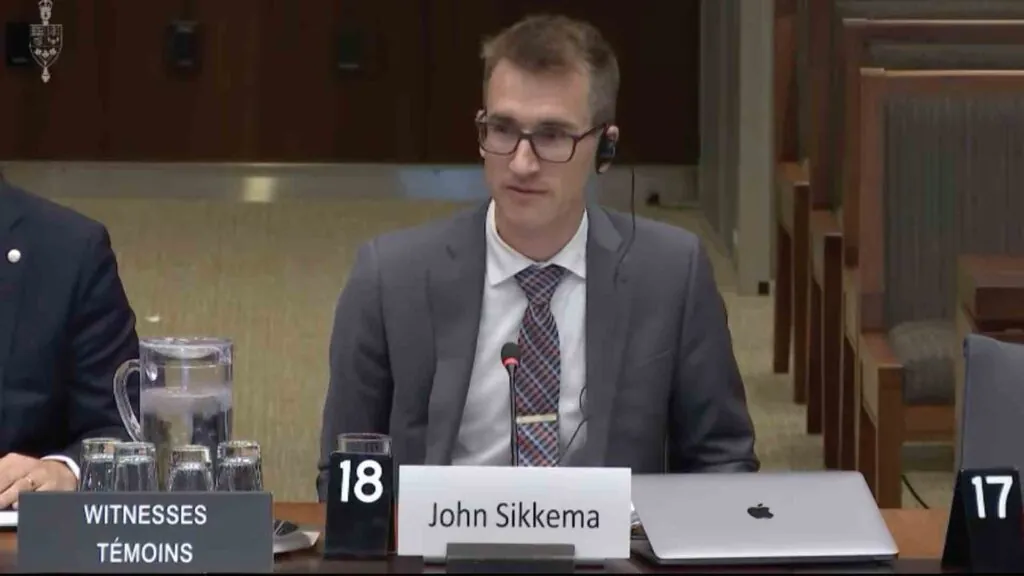Reformed Christians spend a lot of time discussing and resisting bad policy developments. We have much to lament when it comes to public policy in Canada in the last few decades.
But we often forget that we’ve had some wins too. And so, the ARPA Canada staff brainstormed more than two dozen political wins in the last decade or so and voted on which were the best. Each staff member gave 10 points to their top pick, 9 points to their second pick, etc.
Here’s the consensus on the top 10 political wins in Canada in recent years.
#10. Maternal, Newborn and Child Health Initiative
(18 pts)
In 2010, Canada played a leadership role in the Maternal, Newborn and Child Health Initiative (MCHN), a joint project among several developed countries to end the preventable deaths of newborns and children in developing countries across the world. Canada committed $6.5 billion to this endeavor.
While that program itself is a laudable pro-life policy action, it was a victory in another regard. In almost every possible measure, Canada has succumbed to the sexual revolution, and to the pro-abortion advocates, as evidenced by the fact that we are the only democratic country in the world not to have any laws against abortion whatsoever. There was enormous pressure for the Harper government to include funding for abortion in this program. But they resisted the pressure and excluded funding for abortions in developing countries.
#9. Reversal of Alberta’s gay-straight-alliance policy
(26 pts)
In 2017, Alberta passed Bill 24, An Act to Support Gay Straight Alliances, which required all schools to establish a gay-straight alliance club upon the request of any student. The legislation deleted the requirement that parents had to be notified if their children joined the club. It also required schools to “immediately grant permission” to any activities and events initiated by the club and threatened to revoke the funding and accreditation of independent schools who failed to establish these clubs.
Christian schools and Christian parents were rightfully alarmed by this legislation. They fought back. And they won. Just a couple of years later, a new government deleted the worst of Bill 24’s provisions via Bill 8 (2019).
#8. National Strategy to Combat Human Trafficking
(30 pts)
After the landmark Protection of Communities and Exploited Persons Act was passed in 2014 (see #1a), the Canadian government realized that simply having this good law against prostitution wasn’t enough to stop the horrendous crime of human trafficking. Far too many women and girls were being trafficked into sexual slavery in Canada.
And so, in 2019, the government created a National Strategy to Combat Human Trafficking that ran from 2019-2024 to provide greater focus on enforcing the existing law and helping trafficked women escape prostitution. The strategy promoted greater cooperation among various federal government departments and even provincial and local police forces.
#7. Removal of hate speech offences from Canada’s Human Rights Act
(37 pts)
Free speech has long been under attack in Canada. Many of the most egregious violations of free speech in our country happened under the hate speech provision of the Canadian Human Rights Act.
It was relatively easy to bring a successful hate speech complaint. Many of the complaints brought to the Canadian Human Rights Tribunal ruled against Christian speech and let non-Christian speech off the hook. For example, musicians were found not guilty of hate speech for a song that repeated “kill the Christian,” but Christian ministers and activists were found guilty of hate speech when criticizing homosexuality. Given that this hate speech law broadly violated our society’s guarantee of free speech and was often aimed squarely at Christians, we rejoiced when this section was deleted from Canada’s law in 2013.
#6. Improvements to provincial drug policies
(39 pts)
Tens of thousands of Canadians have died from illicit drug use in the past decade. These tragedies sparked many calls for provinces to change their approach to drug policy. British Columbia went perhaps the furthest, effectively decriminalizing the possession of a wide variety of illicit drugs like cocaine and methamphetamine, handing out “safe supply” of drugs on the street, and even allowing the public consumption of these drugs.
But in recent months British Columbia has begun to realize the errors of this approach to drug policy and has changed direction, recriminalizing the use of illicit drugs in public and promising to require those who are unable to escape their addiction to go into treatment programs. Another province, Alberta, has adopted a robust drug recovery program policy in response to this growing crisis.
#5. Manitoba’s conscience rights legislation
(39 pts)
In 2016, right after the legalization of euthanasia across Canada, Manitoba passed legislation to ensure the conscience rights of health professionals not to participate in euthanasia if the practice violates their conscience. This legislation trumps any policy that a medical regulatory body might try to impose on its members. In many other provinces, medical regulatory bodies have policies that require health care professionals to provide an effective referral for euthanasia even if they don’t want to participate in euthanasia themselves. For many Christian doctors and nurses, effective referrals amount to aiding and abetting a suicide so these referrals violate their conscience. Manitoba is the only province that has passed legislation to protect the right of such health care practitioners to follow their conscience in this matter.
#4. Saskatchewan Parents’ Bill of Rights
(41 pts)
Last year, Saskatchewan passed a comprehensive parents’ bill of rights in education, becoming the first province in Canada to do so. Other provinces have some statements and protections of the rights of parents in legislation, but none go as far as the new Saskatchewan bill of rights. Among other things, this legislation guarantees the right of parents to act as the primary decision-maker for their child’s education. This includes requiring that parents be informed on a regular basis of their child’s attendance, behaviors and academic achievement in school, be informed of any sexual education in the classroom, and give consent before a school uses a student’s newly preferred name or pronouns.
#3. Delay of expansion of MAiD to mental illness
(82 pts)
Euthanasia was first legalized in Canada in 2016. Over the last eight years, through a combination of court rulings and new legislation, Canada’s euthanasia regime has become increasingly permissive. It has often seemed like Canada’s euthanasia laws only change in the wrong direction.
Thankfully, it is still illegal to euthanize someone who requests MAiD on the basis of a mental illness alone. While the government had planned to legalize this earlier this year, significant pushback led Parliament to delay this expansion until 2027. That might not seem like a huge policy victory. But this delay does protect Canadians with mental illness from euthanasia for four years longer than the original legislation intended. Furthermore, 2027 is after the next federal election and the party currently leading in the polls (the Conservatives) has vowed to entirely cancel this planned expansion.
#1b. Alberta’s new gender identity laws
(85 pts)
Next up, we have the suite of laws newly introduced (but not yet passed at the time of writing) in Alberta to combat gender ideology in the province. Three separate bills aim to:
- ban medical transitioning for minors under the age of 16
- require the consent or notification of parents for their children to learn about gender and sexuality in the classroom or change their gender identity at school
- limit women’s sports to biological women only
While all three bills could be improved in various ways, they are by far the most ambitious steps taken by any Canadian government to reverse the spread of gender ideology. While New Brunswick and Saskatchewan (see #4) took steps in this regard, Alberta has gone further with its changes to the education system and, if these bills pass, will be the only province in the country to significantly limit medical transitioning for minors.
#1a. Canada’s revised prostitution law (PCEPA)
(85 pts)
Tied for the top of the list is Canada’s new prostitution law, the Protection of Communities and Exploited Persons Act, commonly known as PCEPA. It was passed in 2014 after the Supreme Court of Canada struck down Canada’s existing prostitution laws. The original prostitution laws criminalized almost every part of prostitution except the actual act itself. So, while prostitution itself was legal, it was illegal to advertise the sale of sex, operate a brothel, or profit from someone else’s prostitution.
When the Supreme Court struck down these laws, Parliament seized the opportunity to adopt a very different policy model. Canada’s old laws treated prostitution as a public nuisance to keep out of public view. But PCEPA treats prostitution as a form of sexual exploitation, which better accounts for the ugly realities of prostitution. This new law criminalized both the sale and the purchase of sex, thus publicly condemning prostitution in every circumstance. However, it gave individual immunity to prostitutes to better enable them to seek the help of police and other community services to escape the abusive system of prostitution.
PCEPA is both a good and durable law. Originally introduced under the Harper government, the legislation has survived several court challenges. The Trudeau government hasn’t touched the legislation, despite the Liberal party officially favoring the legalization of prostitution. PCEPA is an important piece of legislation that was intentionally designed to help women escape prostitution, enable law enforcement to crack down on pimps, and discourage men from purchasing sex.
Note: this list only includes laws passed by the federal Parliament and provincial legislatures, and policies that the Prime Minister or Premier have the power to enact. A top ten court decisions would be an entirely different list!












